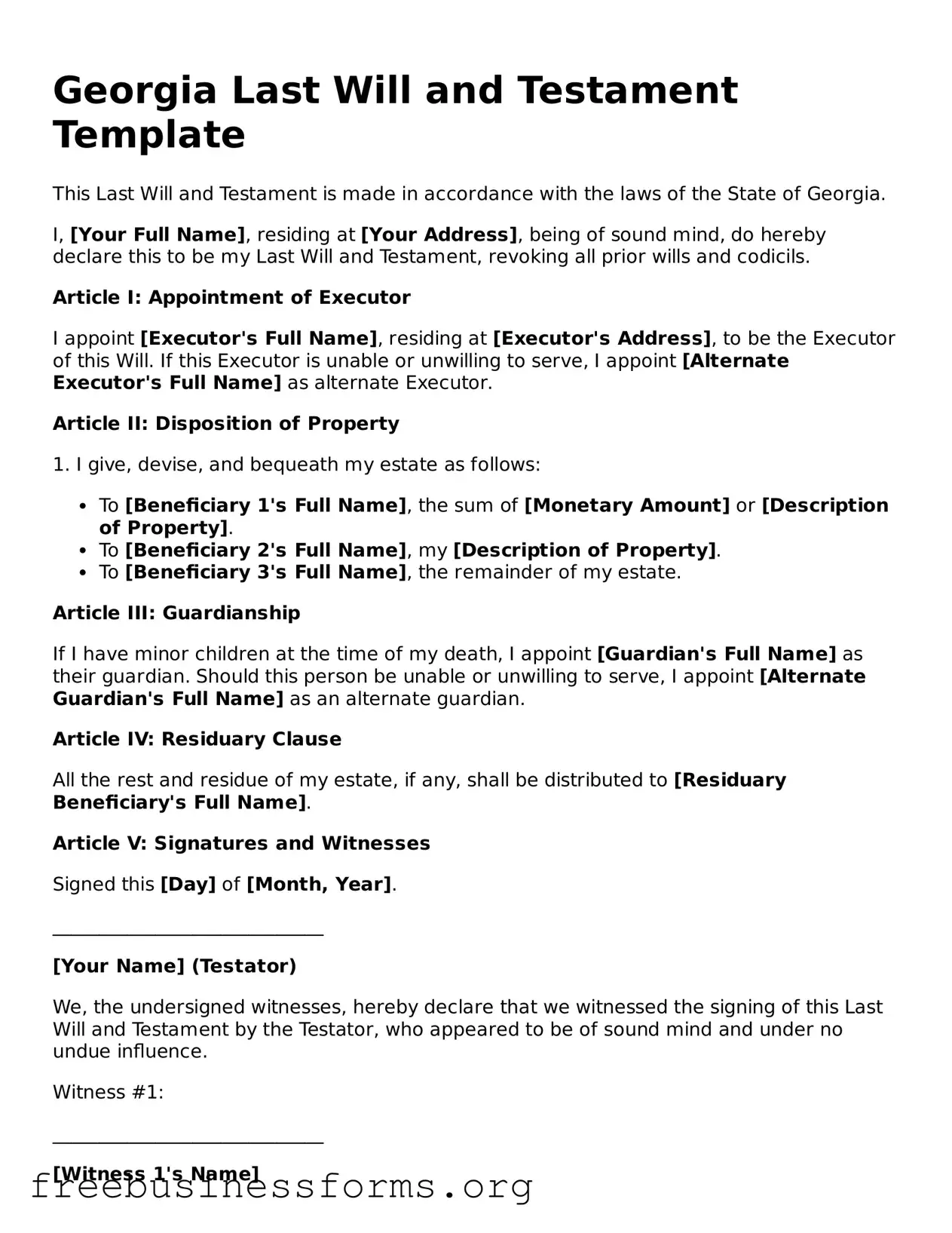Blank Last Will and Testament Template for Georgia
A Georgia Last Will and Testament form is a legal document that outlines an individual's wishes regarding the distribution of their assets after their death. This form serves as a crucial tool for ensuring that personal belongings are passed on according to one's desires. Understanding how to properly complete this form can help individuals avoid potential disputes among heirs and ensure a smoother estate settlement process.
Open Form Here

Blank Last Will and Testament Template for Georgia
Open Form Here

Open Form Here
or
↓ PDF File
Quickly complete this form online
Complete your Last Will and Testament online quickly — edit, save, download.